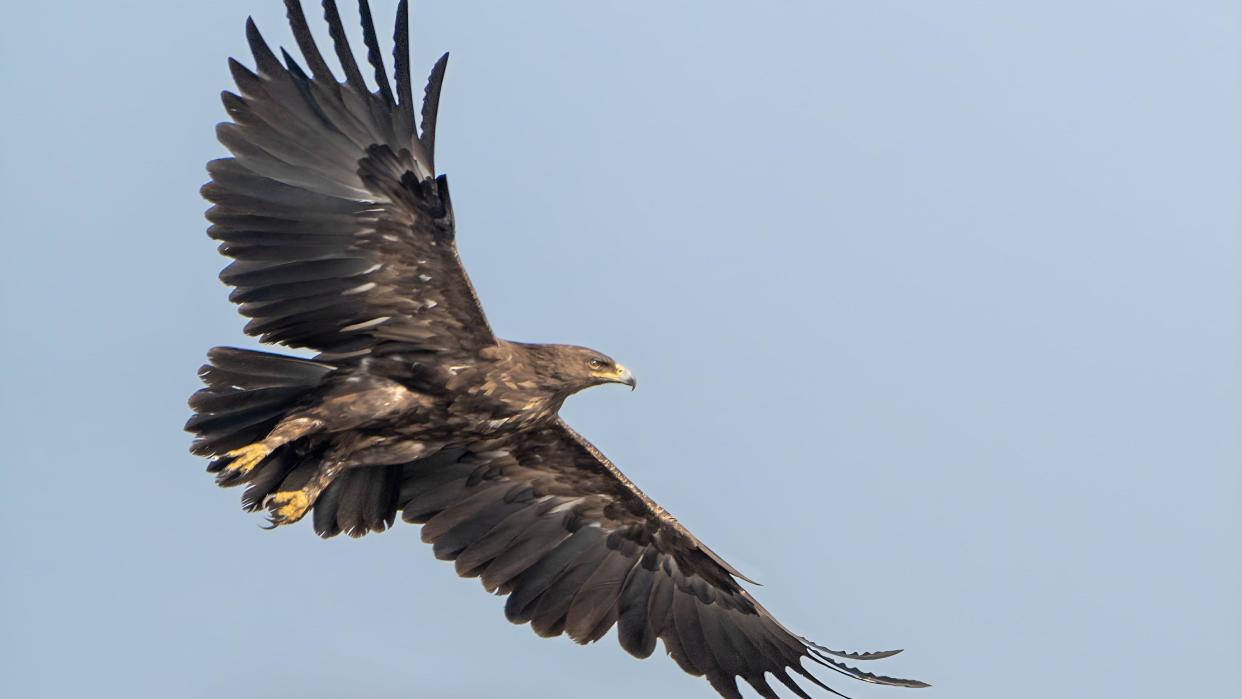Eagles changed migration route to avoid Ukraine war

Eagles changed their migration routes across Ukraine to avoid fighting and because their habitats were likely damaged or destroyed by war, say scientists.
The researchers believe the Greater Spotted Eagles skirted around dangers including artillery fire, jets and tanks as well as buildups of troops.
They fly through Ukraine every Spring on their way from Greece and The Sudd - a large wetland in South Sudan - to breeding grounds in Belarus.
The scientists studied GPS data from tagged birds in the months after the February 2022 invasion, a time of heavy fighting in northern Ukraine as Russia tried to take Kyiv by sending troops south from Belarus.
The researchers from the Estonian University of Life Sciences and the British Trust for Ornithology reported their findings in the journal Current Biology.
“The war in Ukraine has had a devastating impact on people and the environment. Our findings provide a rare window into how conflicts affect wildlife," said lead author Charlie Russell, a postgraduate researcher at the University of East Anglia.
Classified as a vulnerable species, the Greater Spotted Eagle is a large, brownish-coloured bird of prey.
Researchers started following them using GPS tracking devices in 2017 but didn't expect to be monitoring them through an active conflict zone five years later.
The findings reveal they made large deviations from their previously tracked routes. They also spent less time stopping at their usual refuelling sites in Ukraine or avoided them entirely.
As a result, they traveled farther, about an extra 52 miles (85km) on average.
For migrating birds, stopover sites are essential places to get food, water, and shelter.
These changes delayed the birds' arrival at the breeding grounds and likely made them use more energy, to damaging effect.
"No doubt about it. I think the take-home story is that the conflict in Ukraine is fundamentally disrupting the migratory ecology of this species," said Dr Jim Reynolds, Assistant Professor in Ornithology and Animal Conservation at the University of Birmingham, who was independent from the study.
"For a vulnerable species like this, anything that disrupts breeding performance is a major problem. As a conservation biologist, you worry about that in a massive way."
Despite all the tagged birds surviving, researchers believe their experience may have affected their ability to breed.

Sign up for our Future Earth newsletter to get exclusive insight on the latest climate and environment news from the BBC's Climate Editor Justin Rowlatt, delivered to your inbox every Tuesday. Outside the UK? Sign up to our international newsletter here.

